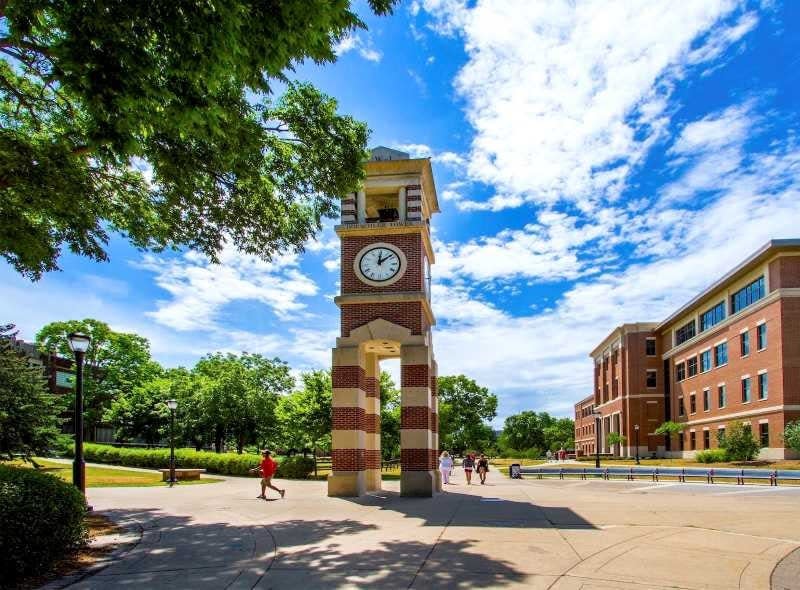Here's what to know about UW promise programs for low-income students

The UW System is funding the first year of the Wisconsin Tuition Promise program, which launches next fall and provides full tuition coverage for new, in-state freshmen and transfer students whose families earn $62,000 or less. The program is open to students attending any UW campus except UW-Madison, which already offers its own tuition promise program that isn't funded with taxpayer money.
UW System has asked the state to fund the program after the first year but Assembly Speaker Robin Vos, R-Rochester, recently shot down the idea. He suggested the program be privately funded, similar to UW-Madison's.
The UW System is committed to fund the 2023 cohort for four years, UW System spokesperson Mark Pitsch told the Journal Sentinel.
Here's what we know:
Is a privately funded program possible?
As the state flagship university, UW-Madison has fundraising resources other UW campuses only dream of. Its private foundation has an endowment of $4 billion.
UW-Milwaukee's endowment is 4% of that, totaling $148 million at the end of the 2021 fiscal year. Among other UW campuses, endowments ranged from $95 million at UW-Eau Claire to $12 million at UW-Parkside.
Despite significantly less resources, these dozen campuses together play a much larger role in educating Wisconsin's low-income students. Of the more than 31,000 UW System students who received a Pell grant last school year, 83% of them did not attend UW-Madison.
How does the Wisconsin Tuition Promise program work?
The program operates as a last-dollar award. It takes advantage of existing state and federal money already available to low-income students, such as Pell grants and scholarships, and covers the remaining balance.
The approach keeps costs lower for campuses. How much additional aid each student receives varies based on each individual's financial circumstances, but UW officials estimate the average student award over four years would be $4,500.
How much will Wisconsin Tuition Promise cost?
The Wisconsin Tuition Promise will cost $13.8 million for the first year of the program. By year four, when the program is fully installed, UW System estimates the program would cost $35.6 million annually and support 8,000 students.
What are other lawmakers saying?
Vos' counterpart, Senate Majority Leader Devin LeMahieu, R-Oostburg, hasn't taken a position yet, said LeMahieu spokesperson Michael Pyritz. The senator is still reviewing the governor's budget proposal.
A member of the powerful budget-writing committee, Sen. Duey Stroebel, R-Saukville, indicated he doesn't support Wisconsin Tuition Promise. After the UW System tweeted that the program would help keep and attract workers, he responded on social media: "Actually the best way to remain competitive and to attract talent is to provide merit scholarships for the best and brightest. The UW System has been woefully inadequate in this area."
UW System pitched the statewide tuition promise program in the previous budget session, too. Republicans rejected it. Asked last year what made this time around different, Rothman said lawmakers are committed to doing what's right for Wisconsin.
"I think they will agree with us moving forward that this is a good investment," he said.
Which Wisconsin schools already offer a tuition promise program?
College Promise, a nonprofit that advocates making the first two or more years of college free, identified 16 other promise programs in Wisconsin.
All but a handful of the state's 16 technical college districts offer programs, including Milwaukee Area Technical College.
Among four-year schools, UW-Madison launched its "Bucky's Tuition Promise" program in 2018. The program covers tuition for students whose families earn $65,000 or less. It's funded through a mix of private money and institutional resources, including tuition revenue from out-of-state students who pay significantly more money to enroll.
More recently, two private schools — Lakeland College and Carthage College — have also launched programs.
Do tuition promise programs work?
MATC launched its promise program in 2015, guaranteeing two years of tuition coverage for urban and suburban Milwaukee high school students. The program is funded through private donations to the college's foundation.
A recent study found the program increased enrollment from 10% to 15% of Milwaukee high school graduating seniors. The team of researchers, which included Jed Richardson of UW-Madison's Wisconsin Center for Education Research, found that about half of the increase came from students who would have otherwise not attended college and the rest came from students who diverted their plans to enroll at a different school and enrolled instead at MATC.
According to study estimates, MATC's program did not kick in additional money for the vast majority of qualifying students whose economic situations already meant their costs would be covered entirely by state and federal aid.
The power of the program, and of all tuition promise programs, is in clear messaging that cuts through the "opacity of the financial aid system," the researchers wrote. The system can be particularly challenging for low-income students who rely on multiple sources of aid. Promise programs strip away the confusion with a simple offer, sending "a powerful message of possibility to students."
What about other college costs?
The existence of promise programs doesn't eliminate financial barriers altogether. Many students still struggle to afford books, rent, groceries and more.
Some schools are paying more attention to these additional expenses.
MATC last fall, for example, launched its first full-ride scholarship program that covers tuition as well as books, child care, housing, food and transportation. The scholarships are available to students seeking short-term technical diplomas or certificates, not associate degrees.
UW-Madison earlier this month announced an extension of its tuition promise program that will cover the full financial need of Wisconsin Pell grant students. Room, board and books are among the expenses that would be covered under Bucky's Pell Pathway.
Contact Kelly Meyerhofer at [email protected]. Follow her on Twitter at @KellyMeyerhofer.
This article originally appeared on Milwaukee Journal Sentinel: Here's what to know about UW promise programs
Solve the daily Crossword

